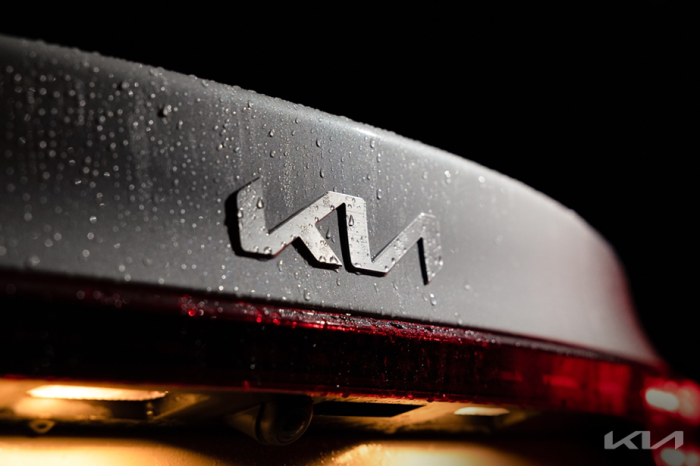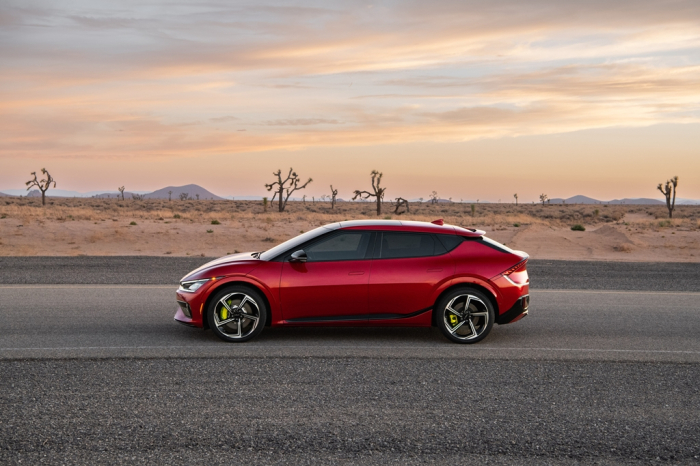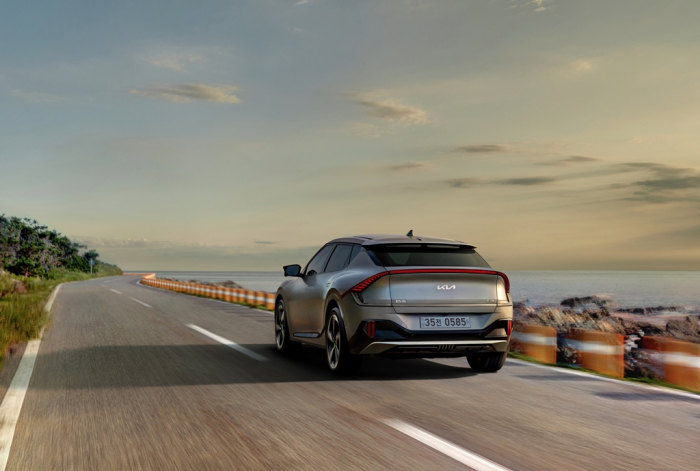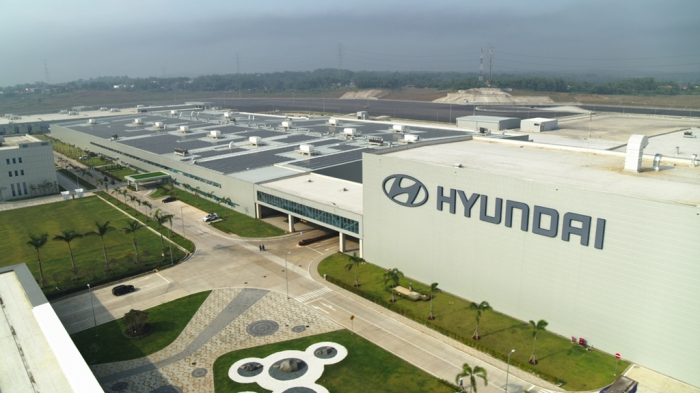Automobiles
KoreaŌĆÖs Kia to set up sales unit in Thailand; EV plant an option
Kia is reviewing the possibility of building a factory, although it has temporarily put the plan on hold for further assessment
By Jan 16, 2024 (Gmt+09:00)
3
Min read
Most Read
Hankook Tire buys $1 bn Hanon Systems stake from Hahn & Co.


S.Korea's LS Materials set to boost earnings ahead of IPO process


NPS to hike risky asset purchases under simplified allocation system


Aman, Rosewood, Banyan, IHG rush to open luxury hotels in Seoul


Osstem to buy BrazilŌĆÖs No. 3 dental implant maker Implacil



South KoreaŌĆÖs second-largest automaker Kia Corp. plans to establish a sales subsidiary in Thailand as part of its electric vehicle push in the fast-growing Southeast Asian market.
Kia, a sister company of Hyundai Motor Co., will launch the Thai subsidiary on Jan. 31 to oversee local operations, including direct sales, marketing and after-sales services, people familiar with the matter said on Tuesday.
Kia has been selling its vehicles in Thailand through a local agent.
Kia will soon announce details, including planned paid-in capital, the subsidiaryŌĆÖs name and the business starting date, sources said.
Separately, the Korean automaker is looking into the possibility of building a car manufacturing plant in Thailand to strengthen its position in the local EV market and support the Southeast Asian countryŌĆÖs electrification transition, according to sources.
Kia has been in talks with the Thailand Board of Investment on the new factory, which will have an annual production capacity of 250,000 vehicles, they said.

ŌĆ£We have internally reviewed the possibility of securing a production base in Thailand to expand our sales in the ASEAN region, but for now we are putting the decision on hold as it is not easy to secure business feasibility,ŌĆØ said a Kia official.
FIRST ASEAN PLANT FOR KIA
If built, the factory will be KiaŌĆÖs first ASEAN, or the Association of Southeast Asian Nations,┬Āproduction plant.
The company currently has production sites outside Korea in the US, China, India, Mexico and Slovakia.
Kia last built an overseas plant in India in 2019.
KiaŌĆÖs latest moves are in line with the Thai governmentŌĆÖs EV push.
Last week, ThailandŌĆÖs EV Board approved the second phase of the governmentŌĆÖs EV Package, known as EV 3.5, to promote its EV industry's steady growth and to facilitate investment opportunities in EV manufacturing in┬Āthe country┬Āfor new players.
Under the program, foreign automakers must produce three EVs in Thailand for every electric vehicle they import to the country for sale.

Thailand is one of Southeast Asia's largest automobile producers and exporters, with its EV sales accounting for nearly half of all EVs sold in Southeast Asia in the second quarter of 2023.
The country is offering generous state subsidies and tax incentives to carmakers intending to convert one-third of new cars to EVs by 2030 in the country.
As part of the plan, Thailand is offering up to 150,000 baht ($4,270) in subsidy per electric car to foreign automakers with local production plans as well as slashing import tariffs by 40%.
CHINESE, JAPANESE CARMAKERS RUSH TO THAILAND
Chinese automakers are the dominant foreign players in ThailandŌĆÖs EV market.

BYD Co.ŌĆÖs Atto 3 compact SUV accounts for nearly 80% of all EVs sold in Thailand.
Last week, ChinaŌĆÖs Great Wall Motor said it has begun building EVs at its 12 billion baht ($342 million) plant in Rayong, Thailand to take advantage of government subsidies that require local production.
Changjiang Automobile recently announced its plan to build an EV plant in Thailand in 2025.
Japanese automakers, led by Toyota Motor Corp., have reigned as undisputed champions in several Southeast Asian auto markets for decades.
Toyota, Honda, Isuzu and Mitsubishi last month announced their plan to invest a combined 150 billion baht ($4.3 billion) in Thailand to locally produce EVs, including electric pickup trucks, within two to three years.
Hyundai Motor established its Thai subsidiary Hyundai Mobility Thailand in April 2023, its third Southeast Asian unit following local affiliates in Indonesia and the Philippines.
Write to Jin-Won Kim at jin1@hankyung.com
In-Soo Nam edited this article.
More to Read
-
 AutomobilesMojave Proving Ground: Backbone of Hyundai, KiaŌĆÖs success in US
AutomobilesMojave Proving Ground: Backbone of Hyundai, KiaŌĆÖs success in USJan 15, 2024 (Gmt+09:00)
3 Min read -
 AutomobilesHyundai Motor to invest $845 million to expand IndiaŌĆÖs Talegaon plant
AutomobilesHyundai Motor to invest $845 million to expand IndiaŌĆÖs Talegaon plantJan 15, 2024 (Gmt+09:00)
3 Min read -
 AutomobilesKiaŌĆÖs new Carnival RV rides on growing popularity of hybrid cars
AutomobilesKiaŌĆÖs new Carnival RV rides on growing popularity of hybrid carsNov 10, 2023 (Gmt+09:00)
2 Min read -
 AutomobilesHyundai, Kia to showcase new cars at IndonesiaŌĆÖs GIIAS auto show
AutomobilesHyundai, Kia to showcase new cars at IndonesiaŌĆÖs GIIAS auto showAug 04, 2023 (Gmt+09:00)
3 Min read -

-
 AutomobilesHyundai, Kia vow to crack Japan-dominated SE Asian market with EVs
AutomobilesHyundai, Kia vow to crack Japan-dominated SE Asian market with EVsJan 21, 2023 (Gmt+09:00)
4 Min read
Comment 0
LOG IN


